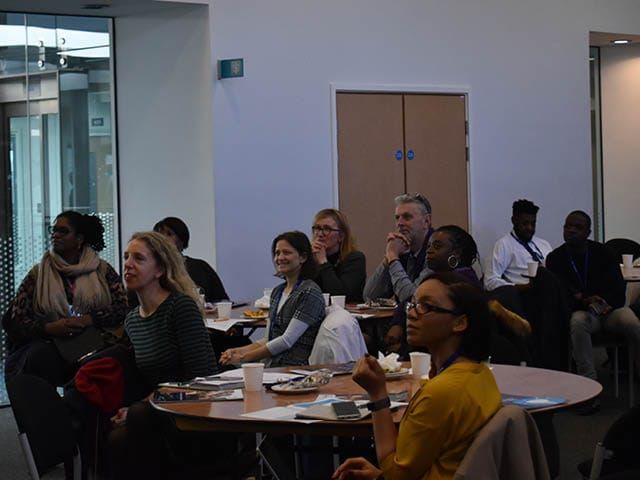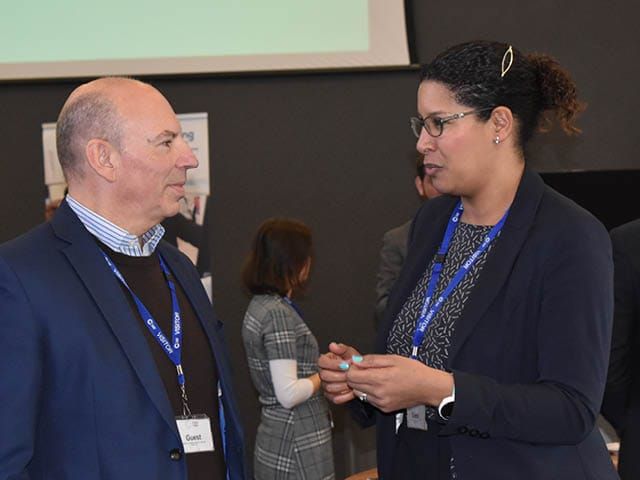Increasing disability confidence in SMEs
12 Feb 2020
Reed in Partnership is a proud Level 3: Disability Confident Leader. We are committed to promoting disability confidence in employers and ensuring the accessibility of work for all.
We hosted a Working Breakfast in Croydon today that brought together local organisations to discuss hiring people with disabilities and health conditions. Charles Humphreys, Employment Support Officer on our Better Working Futures service in South London, shared a recent report from the CIPD that found “disabled employees outperform all other groups in terms of innovation and professional ambition”.
The employment rate for people with a health condition or disability is currently 53% compared to 80% for the general working population. Our Better Working Futures service is helping to close this gap and ensure disabled people do not face disadvantage or discrimination when applying for work. Since its launch in 2018 the service has supported over 500 unemployed jobseekers into work.

Nigel Lewis, CEO of local business Clarity & Co, spoke at our Working Breakfast about how his company has been providing meaningful employment for disabled people since 1854. 80% of their workforce identify as having a disability. Nigel stressed the importance of removing stigma about ability and working proactively to breakdown the barriers to employment that people with a disability can face. He shared some examples of small, easy changes that can be made, including ways to make the application process more accessible.
Another key speaker, Adrian Ward from the Business Disability Forum, works with organisations to help them recruit and retain employees with disabilities. Adrian highlighted two key reasons that employers use to explain their lack of inclusivity.
“We will need to make adjustments and we don’t have the budget.” Adrian explained this is a common misconception that employers have, but in fact most necessary adjustments do not have a monetary cost associated with them. If the adjustment does require funding, this can be sourced through organisations such as Access to Work who provide grants and help disabled people into during employment.
“Disabled people have more time off work.” Adrian pointed out the lack of evidence to support this claim and highlighted contrary reports.

Our event aimed to promote the idea that recruiting people with disabilities and health conditions should be viewed as an opportunity to source the best talent, often from untapped pools of candidates.
Charles Humphreys commented:
“Disability confidence is about creating a new standard. Encouraging employers to think differently about what they can introduce into their companies to make things fair and thinking about what they can do to differently to attract, recruit and retain people with disabilities.”
Better Working Futures is Reed in Partnership’s name for the Work and Health Programme in South London, which is funded by the South London Partnership and European Social Fund. For more information visit bwfsouthlondon.co.uk.
We are encouraging all employers to show the commitment to inclusive workplaces by signing up as a Disability Confident employer at disabilityconfident.campaign.gov.uk
